6 May 2016 | Bahrain, Bahrain Statements, Campaigns, Campaigns -- Featured, Middle East and North Africa, mobile
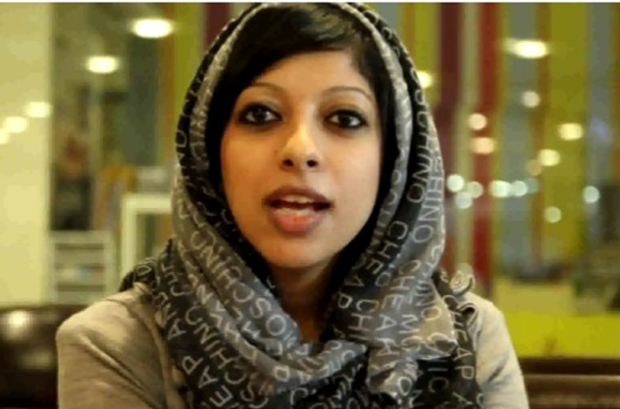
On 7 April 2016, Bahraini foreign minister Sheikh Khaled bin Ahmed al-Khalifa told the US State Department during meetings with Secretary of State John Kerry that activist Zainab Al-Khawaja, who was imprisoned on 14 March along with her one-year-old son Abdulhadi, would be freed.
One month on, we are still waiting for her release.
Index on Censorship has repeatedly expressed concerns over the detention and treatment of Al-Khawaja. After being taken into custody, she was transferred to the Isa Town Detention Center, which has been criticised for its poor sanitation and regular outbreaks of Hepatitis C, to serve out her prison term. She was initially denied food for herself and her son.
In October 2015, Bahrain’s appeals court confirmed her conviction for insulting the king of Bahrain by tearing up a photograph of him and reduced her three-year prison sentence to one year.
“Zainab Al-Khawaja is serving prison term based on charges related to her right to freedom of expression and assembly,” said Index’s senior advocacy officer Melody Patry. “Her imprisonment violates international human rights standards and every day she spends in jail brings into question Bahrain’s commitment to democracy and the rule of law.”
“We call on Bahrain to keep the promise made to the US State Department a month ago to release Zainab Al-Khawaja with no further delay,” Patry added.
The US State Department has also reminded Bahrain to follow its promise to release Al-Khawaja and her son “as soon as possible”. The UK government has raised Al-Khawaja’s case “with the Government of Bahrain at the highest levels”, but has failed to call for her release.
The Al-Khawaja family, who have been active in Bahrain’s pro-democracy movement, and have been harassed and targeted by authorities.
Al-Khawaja’s father, Abdulhadi Al-Khawaja, head of the 2012 Index Award-winning Bahrain Center for Human Rights, is serving a life sentence for the role he played in the 2011 demonstrations in Bahrain.
Bahrain must now adhere to its promise and free Zainab Al-Khawaja.
6 May 2016 | Europe and Central Asia, Events, Hungary, mobile, Poland, Turkey, United Kingdom
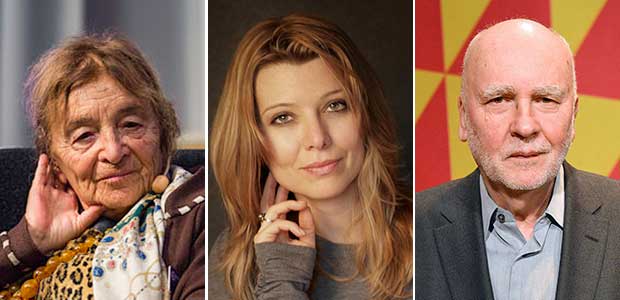
Join Agnes Heller, Elif Shafak and Adam Zagajewski for a discussion about Europe’s changing environment for freedom. (Photos: Agnes Heller, Elif Shafak: Wikipedia; Adam Zagajewski: Frankie Fouganthin via Wikipedia
“The point of the future is that anything can happen.” – Victor Orban, prime minister of Hungary
Europe was a bastion of hope for more than a million refugees last year. What brought them? A hunger for safety and security? Dreams of freedom? The draw of liberal democracy with its ideals of free expression, equal opportunity and persecution for none?
But look within our own continent and you will see the cracks. In Hungary, Victor Orban’s administration looks increasingly autocratic. Poland’s new conservative government is making changes to its public media that critics have said amount to a takeover. How can we support neighbours like Turkey in their fight to avoid authoritarianism if we can’t fly the banner for freedom at home?
On the eve of the EU referendum, three major cultural figures from Hungary, Poland and Turkey gather in London to compare their stories and ask: is Europe just a place, or a set of values that are rapidly unravelling?
Featuring:
When: Wednesday 15 June, 6.45pm
Where: Free Word Centre, 60 Farringdon Rd, London EC1R 3GA (Map)
Tickets: £5/£3 from Free Word website or 0207 324 8904
This event will be live streamed. Click here to tune in to the Free Word YouTube livestream, which will begin at 6.45pm (BST) on Wednesday 15 June 2016. Join in the conversation by tweeting @IndexCensorship using the hashtag #FWEurope.
Presented in partnership with:
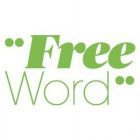
More about the panelists:
Agnes Heller was born in 1929 and is one of the leading thinkers to come out of the tradition of critical theory. Her broad intellectual range and publications include ethics, philosophical anthropology, political philosophy and a theory of modernity and its culture. Hungarian by birth, she was one of the best-known dissident Marxists in central Europe in the 1960s and 1970s. She has held visiting lectureships all over the world and has been the Hannah Arendt Professor of Philosophy at the New School in New York. She now lives in Budapest and is one of the most popular and outspoken critics of the current regime.
Elif Shafak was born in Strasbourg, France, in 1971. She is an award-winning novelist and the most widely read woman writer in Turkey. Critics have named her as “one of the most distinctive voices in contemporary Turkish and world literature”. Her books have been published in more than 40 countries and she was awarded the honorary distinction of Chevalier of the Order of Arts and Letters. Elif has published thirteen books, nine of which are novels. She writes fiction in both Turkish and English. Elif blends Western and Eastern traditions of storytelling, bringing out the myriad stories of women, minorities, immigrants, subcultures, youth and global souls. Her work draws on diverse cultures and literary traditions, as well as a deep interest in history, philosophy, Sufism, oral culture, and cultural politics. Elif’s writing breaks down categories, clichés, and cultural ghettoes. She also has a keen eye for black humour.
Adam Zagajewski is an award-winning poet, novelist, translator and essayist. Born in Lwow in 1945, he first became well-known as one of the leading poets of the Generation of ‘68’ or the Polish New Wave (Nowa Fala). His poems and essays have been translated into many languages. Among his honors and awards are a fellowship from the Berliner Kunstlerprogramm, the Kurt Tucholsky Prize, a Prix de la Liberté, and a Guggenheim Fellowship. Since 1988, he has served as visiting associate professor of English in the Creative Writing Programme at the University of Houston. In 2010, he was nominated for the Nobel Prize in Literature. Adam is currently co-editor of Zeszyty Literackie (Literary Review). He lives in Krakow.
5 May 2016 | Belgium, Europe and Central Asia, Mapping Media Freedom, News and features
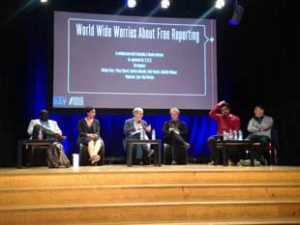
L-R Antoine Kaburahe, Melody Patry, Jean-Paul Marthoz, Thierry Chervel, Abdualla Maksour and Rudi Vranckx discuss world wide worries about free reporting
This week’s Difference Day conference in Brussels was all about celebrating press freedom. “Should we instead mourn press freedom?” asked Jean-Paul Marthoz, EU correspondent for the Committee to Protect Journalists.
Journalists and media professionals from across the world attended the World Press Freedom Day event at the Bozar Centre for Fine Arts on 3 May.
Marthoz was joined at the World Wide Worries About Free Press debate by Index on Censorship’s senior advocacy officer Melody Patry, journalist Thierry Chervel, founder and director of Burundi-based newspaper IWACU Antoine Kaburahe, conflict journalist Rudi Vranckx, and Syrian journalist and novelist Abdualla Maksour.
Patry drew attention to the work of those who fight to protect press freedom. She said although she can understand the position of “pessimists among us today”, having “a day to celebrate journalism and the free press already shows that we are attached to the idea that we need to support and protect the standards of journalism across the world, and highlight the work of journalists who are imprisoned and even killed for reporting the news”.
Conflict journalist Rudi Vranckx was less optimistic. He told of how every translator he worked with in Iraq, Syria, Gaza and Egypt has since been forced to flee their home.
Vranckx’s concerns were shared by Maksour who, holding a sign with the Aleppo is burning hashtag, highlighted the situation in Syria, stating that 15 civilians had died there on that morning alone.
“You can’t find a foreign journalist out there because it is very dangerous – they will be arrested or be killed,” said Maksour, adding that the situation prevents us from seeing the real picture of what is going on in Syria.
In an earlier debate, EU Media, Censorship and Propaganda, Patry introduced Index on Censorship’s Mapping Media Freedom project and took part in a discussion with Marthoz, Jakub Kalensky of the East StratCom Task Force and Maria Donde, Ofcom’s international policy manager.
The debate focused on ways to counter propaganda with information that is readily and safely available for anyone, so that people can make up their own mind.
“People, of course, should have access to as wide a range of information as possible, but what’s continually important is for them to have critical understanding to be able to tell the difference between a fabricated, exaggerated, poorly sourced story and what is a credible news source,” Donde said.
Patry, agreeing with Donde, suggested people shouldn’t necessarily believe everything they see on the TV. “Journalists doing a good job, verifying sources, and verifying information is also part of improving the wider environment for press freedom and pluralism in Europe,” she added.
Difference Day showed that press freedom never comes without challenges. It may be time to ask ourselves seriously: is it time to mourn or celebrate?
4 May 2016 | Asia and Pacific, Malaysia, mobile, News and features
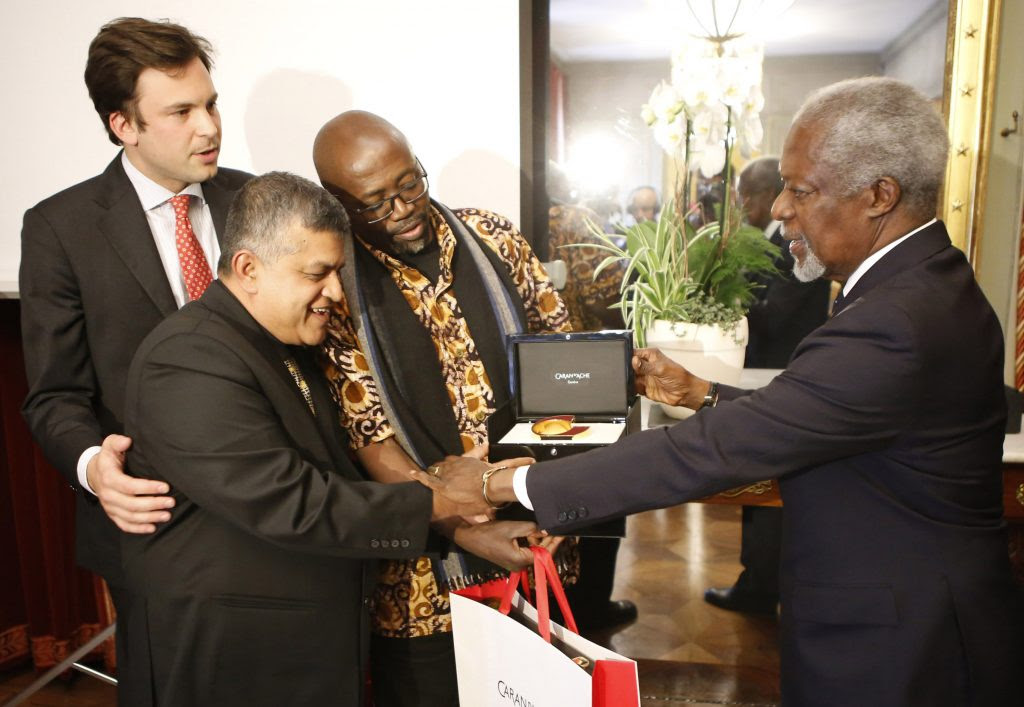
Zunar receiving the award from Kofi Annan, secretary-general of the United Nations, at the Palais Eynard, Geneva
Malaysian cartoonist Zulkiflee Anwar Haque, aka Zunar, has won the 2016 Cartooning for Peace Prize.
The award was presented at a ceremony at the Palais Eynard in Geneva on Monday 3 May 2016 by the honorary president of the Swiss Foundation Cartooning for Peace and former secretary-general of the United Nations Kofi Annan.
Annan said the award — jointly won by Kenyan cartoonist Gado — “reminds us how fragile this liberty remains in Africa and in Asia as well as in other regions of the world”.
“Through their commitment towards open and transparent societies, Gado and Zunar, who have received threats in their countries of origin and can no longer practice their profession, confront us with our responsibility to preserve freedom of expression and act in order to support the combat of those who cannot express themselves through their art,” Annan added.
Zunar has been repeatedly targeted with arrest, detention and harassment for his cartoons which are critical of corruption and abuses of power committed by the Malaysian government. He is currently facing nine charges of sedition for criticising Malaysia’s judiciary over the recent incarceration of a Malaysian opposition leader and faces a possible 43 years in prison if found guilty.
The cartoonist said the Cartooning for Peace Prize gives him “strength for me to continue the fight against the 60-year old corrupt and repressive Malaysian regime”.
He said human rights and freedom of expression are in “dire straits” in Malaysia and the country’s institutions and draconian laws such as the Sedition Act are routinely used as a tool to “silence critics” and “maintain power”.
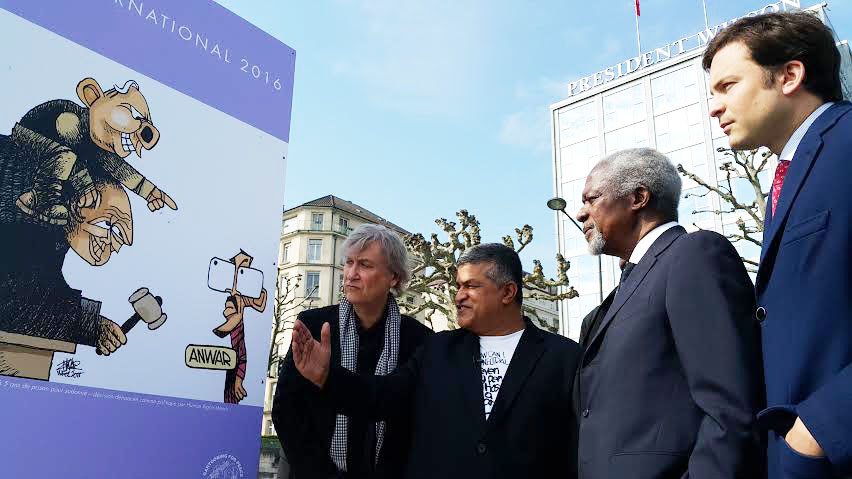
“Talent is not a gift, but a responsibility,” Zunar added. “It is a duty for me as a cartoonist to use the art as a weapon to fight unjust rulers. Fear and intimidation are the potent tools being used by the regime to scare the people.”
“I also strongly believe that, when faced with a moral crisis, there is no room to grumble in silence. We have to stand up and cry our voice out loud and clear. Neutrality is escapism for those who live in a comfort zone.”
Zunar has spent two periods in Malaysian jails, firstly in September 2010 and again from 10 February 2015. Several of his books have been banned while bookstores carrying his works have been raided and three of his assistants were arrested in October 2014 for selling his books. The webmaster, who manages his website and online bookstore, has been interrogated by Malaysian police.
Zunar has previously been awarded the 2011 Courage in Editorial Cartooning Award by Cartoonists Right Network International, the 2011 and 2015 Human Rights Watch Hellman/Hammett Award, and the 2015 International Press Freedom Award by the Committee to Protect Journalist.
Zunar received a standing ovation at Index on Censorship’s Freedom of Expression Awards in London in April.
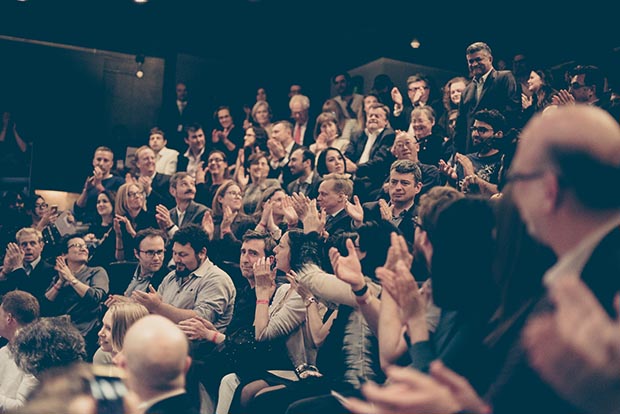
Zulkiflee Anwar Haque, aka “Zunar”, upper right, is saluted by the audience. (Photo: Elina Kansikas for Index on Censorship)







